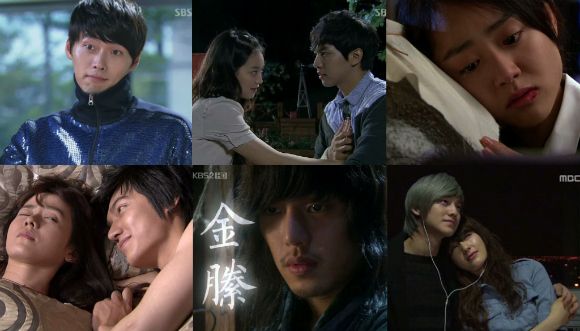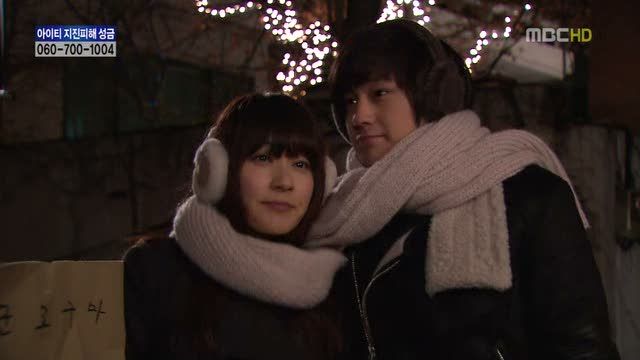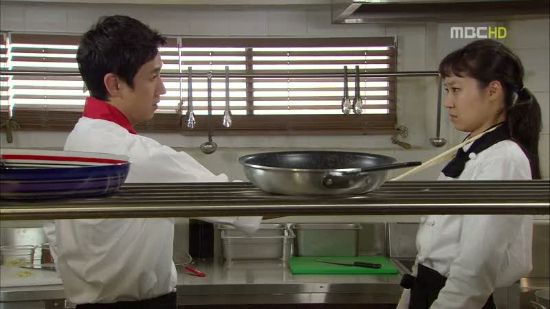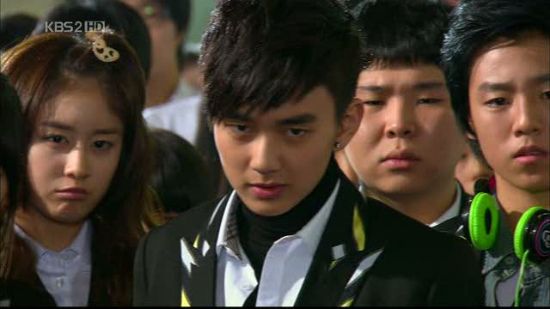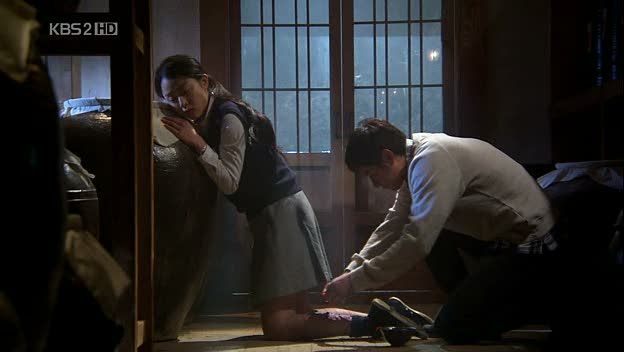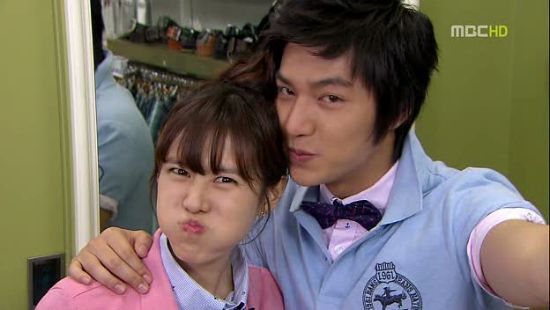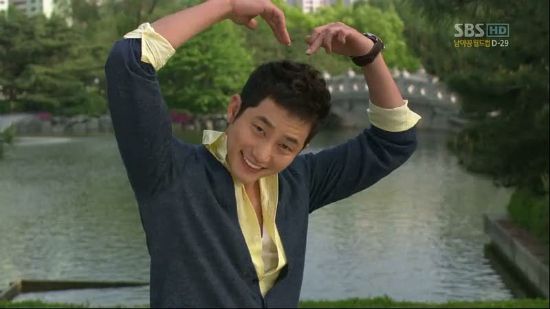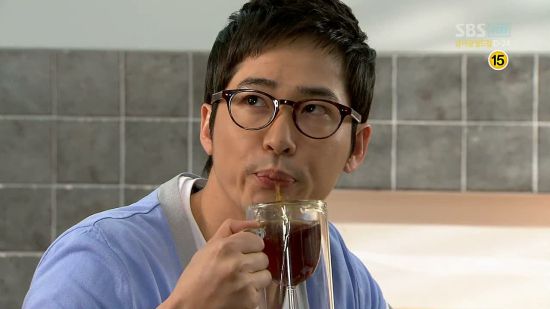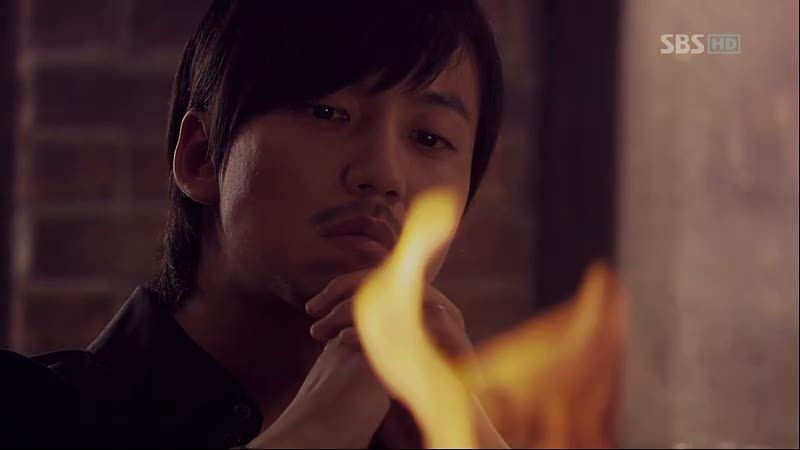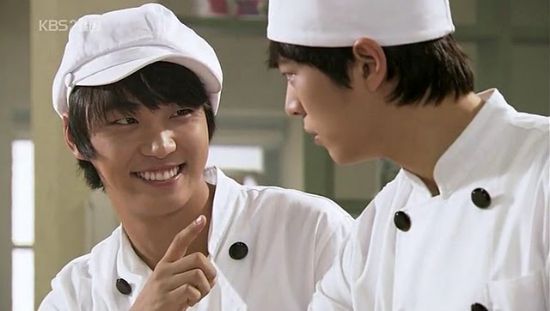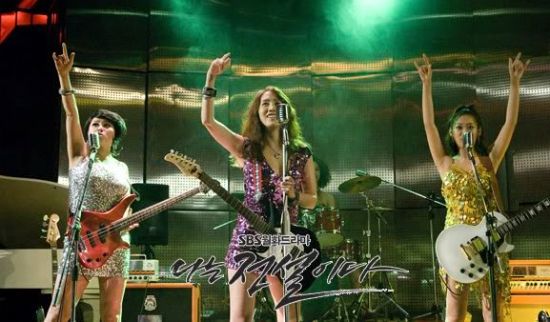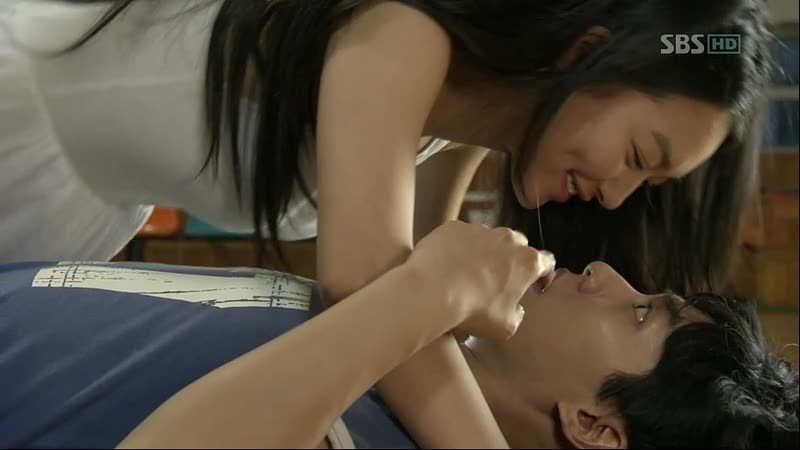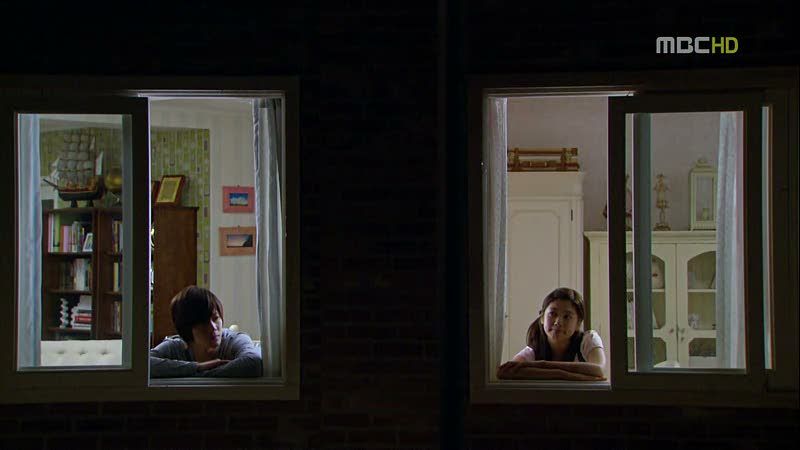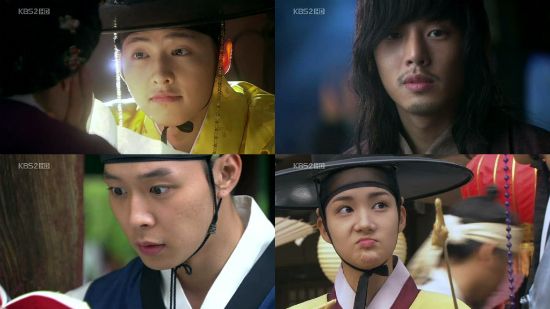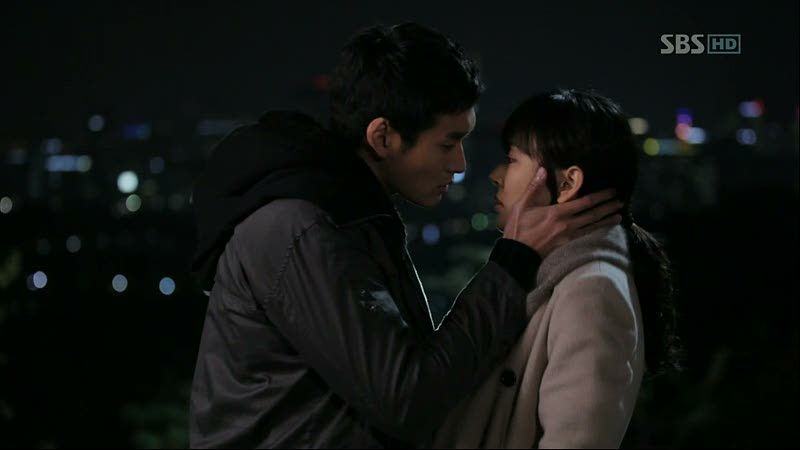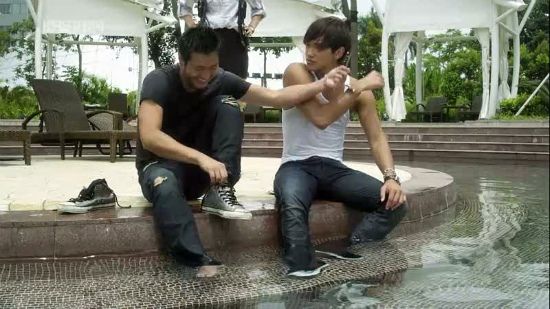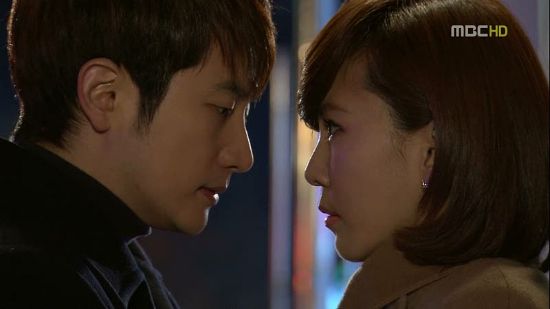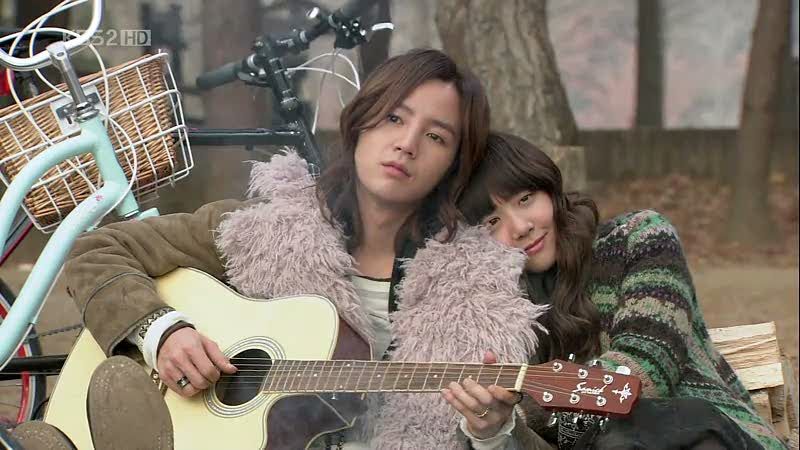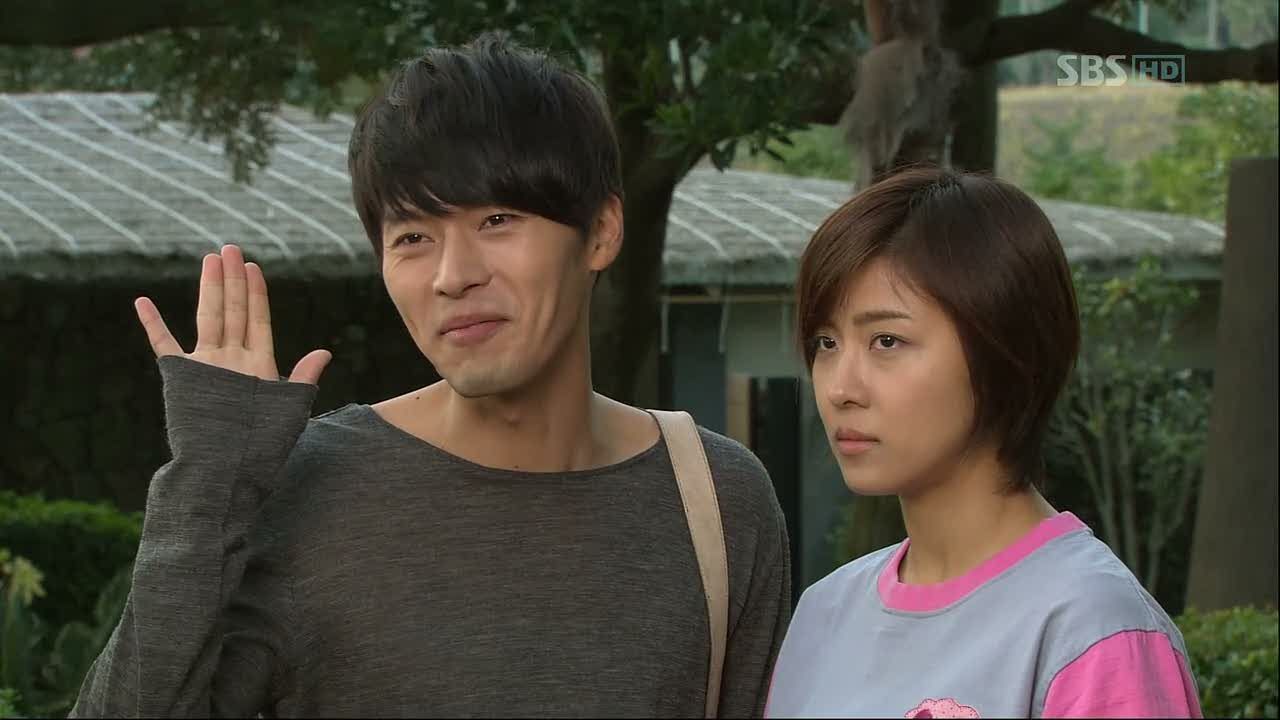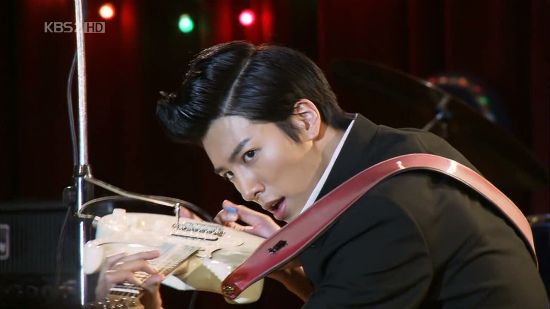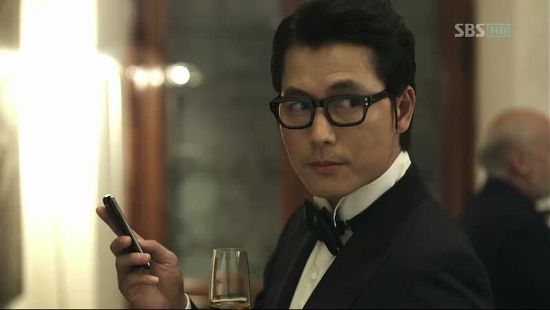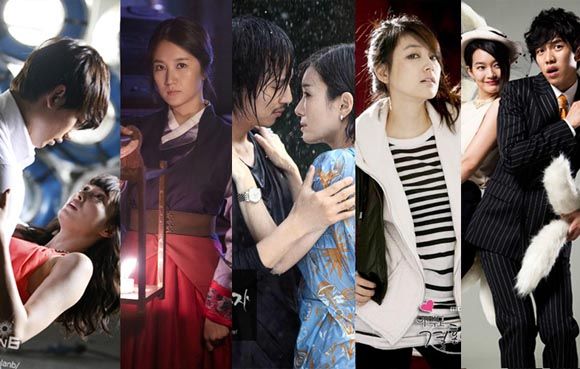
As in past years, this’ll be a multi-part series, with five posts in total. If you’d like to check out past Year In Review posts, you can get there by way of this handy link — linky! — or via the recap index.
Without further ado, let’s get this show on the road.
SONG OF THE DAY
Cinderella’s Sister OST – “Smile Again” [ Download ]
As always, you’ll notice that some dramas are missing from my list. That’s because of that whole time-space continuum thing where I don’t have the time to watch every show ever, but hopefully amongst all of us writing review posts, we’ll get the big ones covered. The following are in chronological order by premiere date.
Wish Upon a Star
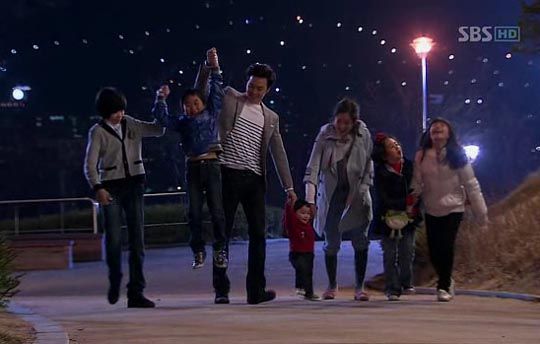
I wasn’t expecting to watch Wish Upon a Star, much less get hooked and recap the whole thing. For one thing, the day it premiered was a busy, busy Monday that saw four premiere episodes, and it was the least interesting-sounding selection of the bunch. (The others were youth-oriented God of Study, workplace romance Pasta, and thoughtful sageuk Jejoongwon.) I gave the first two episodes a cursory watch, and while I was entertained, I wasn’t sold. But as the the lead character (Choi Jung-won’s Pal-gang) went from frivolous shopaholic to dedicated surrogate mother to her five orphaned, adopted siblings, it started to develop substance and heart, just as Pal-gang did.
And the kids! Adorable, yes, but what really made them stand out is the way they were more than mere plot devices needed to tie Pal-gang down to her new maternal role. They had distinct personalities and developed familial bonds with their new housemates, Kang-ha and Jun-ha (Kim Ji-hoon, Shin Dong-wook), bringing about changes in them as well. The unlikely bond that sprung up between young Pa-rang and cold lawyer Kang-ha was one of the highlights, as the boy’s unconditional love melted the latter’s icy exterior.
Alas, we had that pesky other half of the drama to contend with: the chaebol family with its scheming mother, scheming daughter, and secret baby plotline. That secondary plot increasingly lost touch with reality (not that it was all too acquainted with it in the first place) and took the tone from cute family bonding to makjang insanity. Second lead Chae Young-in was useless — haughty, sneering, in dire need of a clue — and she dragged down Shin Dong-wook with her. (Where was the charming, cool lead from Soulmate?) It’ll be a while before I can forgive her for ruining his last pre-army project (although to be fair, he had an unfortunate tendency to overemote; his intensity was out of step with the rest of the drama and came off a little unhinged).
Even more than the cuteness of the kids and the hilarity of the comedy (such as watching straitlaced Kang-ha dealing with the Night From Hell, which has him dirtied by a soiled diaper, vomited upon, and car stolen), there are two things that particularly endear this drama to me. First is that we get significant and satisfying growth from both leads, and much of that growth is spurred by the other, which makes their eventual romantic pairing that much more effective in a long-term sense. She grows up and becomes a responsible adult, while he lets his guard down and trades some of his cynicism for open affection.
Second is the fact that the drama actually delivered on its anti-Cinderella claims. Pal-gang dreams of being a Cinderella in the beginning, perfectly content to be a trophy wife. But when she decides to devote herself to raising her siblings and putting her frivolous past behind her, she actually means it. There no “until Prince Charming comes along to solve all my problems” caveat to dull the effect of her conviction, and she resists the easy outs offered to her via her rich new boyfriend and rich new grandpa. Props for that. Even so, at the end of the day she also realizes that being independent shouldn’t preclude love or marriage, now that she has made her point and delivered on the promise to not count on others to save her. She’s one heroine who earned her happily ever after.
The Woman Who Still Wants To Marry
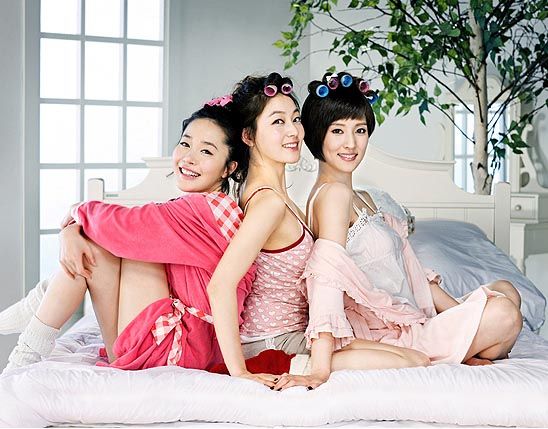
MBC’s little-watched The Woman Who Still Wants To Marry is one of this year’s gems and one of the most underappreciated, even by myself. Sure, while I was watching the show I knew it was solid and insightful and at times laugh-out-loud funny. But it wasn’t until several months and numerous disappointments later that I appreciated more fully the drama’s balance of outrageous humor and its thoughtful handling of romantic, friendship, and family issues.
Even at its silliest, the drama is in tune with its heart; in this case, the friendships at the core. For instance, Da-jung’s drunken faceplant into wet cement is one of my favorite comic moments, but what makes it even better is the way Shin-young swoops to the rescue, because that’s what girlfriends do when our best girlfriends are drunk and stupid and needing the benefit of someone’s better, sober-er judgment — whether that sober judgment involves holding back your hair as you cough up last night’s mistake, or, as in this case, chopping it off to free you from a sticky (har) situation.
Centered around successful reporter Shin-young (Park Jin-hee), the drama follows her career foibles, romantic entanglements, and her friendship with her best girls, Da-jung and Bu-ki. In a nutshell, it’s a drama about the issues commonly faced by the modern working woman, which is a horribly dry way to describe the bright, effervescent fun spirit of this series. Not only does the drama tackle what it feels like to be 34, single, and happy about it despite the world telling you that you really should feel somehow lacking, it weaves together its various plots with an effortless, humorous touch.
Nowadays the noona dating relationship is a common drama trend, but rarely does the drama actually address some basic issues wrought by the age difference in a thoughtful, realistic way. Shin-young’s relationship with 24-year-old Min-jae brings up some valid points about being at different points in your life, not to mention the stickiness that arises in these nontraditional setups that mean your potential father-in-law may be your own age. (Also your ex-boyfriend.) But neither character is shoved into a stereotypical corner, and the two wade through these uncharted waters with hopeful optimism — it’s not so much about happily ever after as it is about being the happiest you can be and keeping an open mind about where that’ll take you.
It only takes one look at other dramas that attempted breeziness and instead came off painfully labored in order to realize how rare it is that a show hits the perfect balance between lightness and substance. The Woman Who Still Wants To Marry was a comfort-food drama that also made you think. And feel. And laugh. Best of both worlds.
Oh! My Lady
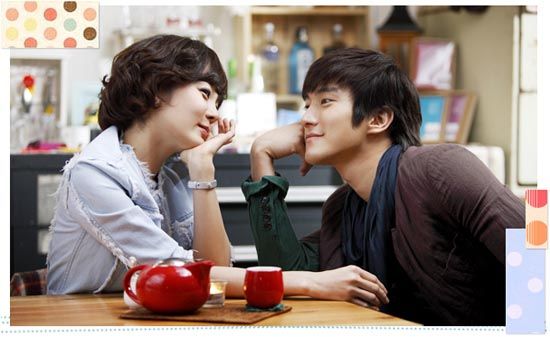
They didn’t, however, have much in the way of sexual chemistry, which makes Oh! My Lady an odd entry in the rom-com genre. Perhaps the writer or PD picked up on their platonic noona-dongsaeng vibe and decided to leave the romance on the back burner, instead opting to highlight Min-woo’s (Choi) growth as a reluctant father after finding himself saddled with a young daughter he didn’t know he had. That was a wise choice, because that’s frankly a more compelling and less-explored plot than the housekeeper-employer romance.
Min-woo has a fantastic character arc, going from disinterested dad — the kind who even momentarily considers ditching his new burden on the street, for shame — to the kind who throws his reputation and public image to the wind without a second thought when his daughter’s happiness is at stake. But Kae-hwa (Chae Rim) is the same at the end that she was at the beginning, which isn’t so terrible for her since she was a decent human being to start with, but sort of a waste from a dramatic standpoint.
As a result, this drama goes from being Oh! My Lady to Oh! My Daddy, which is great for Choi Siwon but a damn shame for Chae Rim, who is making some disappointing choices lately. She was wonderful as Dal-ja (not to mention her earlier roles), so why is she playing older than her age, frumping her looks, and doing stuff like Good Job, Good Job and this drama, where she gets shunted off to the side as a prop for Min-woo’s development?
Oh! My Lady isn’t a huge disappointment because it’s a drama that didn’t make big promises to start with, but its one glaring flaw is that the lack of romance makes the resolution dissatisfying: When Min-woo pursues Kae-hwa, we get the sense that he’s drawn to her as a friend and as a mother for his child, not because he’s in love with her. In fact, it may have been better to just take that approach, but in asserting that he feels a romantic love when we haven’t seen it and can’t feel it, the ending rings false.
My recommendation? Watch this one for the father-daughter growth, which is sweet and satisfying, and feel free to skip the rest.
Cinderella’s Sister
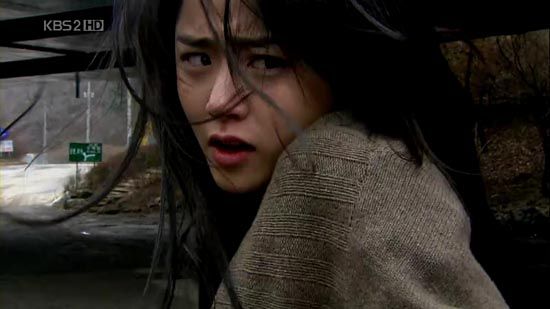
The drama was chock full of talented actors, and Moon Geun-young did not fail to blow me away with her portrayal of Eun-jo as a damaged, defensive, abrasive, distrusting young woman who desperately wants to feel loved but has learned too soon that love can betray and hurt you. That the lesson comes from her own mother (played commandingly by an always-superb Lee Mi-sook) only makes it harder for others to crack through that seemingly impervious shell she builds up around her, but one person manages it — stepfather Dae-sung, played by Kim Gab-soo, whose performance regularly brought me to tears.
So convincing is Moon that you’d think she’d been playing rebellious teens her whole career, and she made you feel Eun-jo’s pain and fear. It’s a crying shame that the drama then took these wonderful characterizations and stuck them on a narrative treadmill for about ten episodes — one step forward, one step back, on and on and on. It’s one thing if that lack of forward movement were merely boring — that allows you to mentally check out and detach, chalking it up as just another disappointment.
But Cinderella’s Sister piled on the angst and gave us tears, agonized family conflicts, and a whole lotta internalized brooding. Eun-jo clashed with stepsister Hyo-sun (Seo Woo), fought with Mom, and angrily shook off the well-intentioned advances of Ki-hoon (a sorely wasted Chun Jung-myung) in practically every episode, which became simply exhausting. How about some payoff to counter the pain? No? Let me go curl up and cry from all the emotional turbulence, then.
By the time the ending came around, I felt more like the drama was put out its misery than had achieved a believable resolution. These characters never learned, and therefore I had no hope that in their fictional future, they’d achieved any peace. Never has a happy ending felt so bleak. It’s enough to drive you to drink. (hic!)
Personal Taste
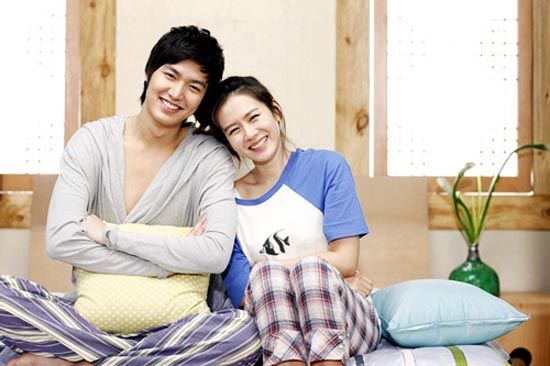
Casting, check. Premise, check. Hilarious sidekicks, check. Chemistry of leads, check. So where’d it go wrong?
Well, writing was certainly partly to blame, but I blame directing even more. Even when the plot was zipping along and the characters cute-ing it up all over the place (and each other), the drama found ways to muck up its scenes by editing poorly, inserting odd beats and cutting important ones, using strange music, and basically wrecking the effect that everyone else had worked so hard to achieve.
What saved Personal Taste from being a total disappointment is its wacky humor (chainsaws, gay-not-gay misunderstandings) and heartfelt acting. Sohn Ye-jin breathed life and spirit into her Kae-in character, bringing her vulnerability alive with painful clarity, and ultimately it was Sohn who was most wasted by the underdeveloped plot. Lee Min-ho had wonderful chemistry with her, and thankfully didn’t overdo the feigned gay act, which could have been uncomfortable at best, offensive at worst. (Ryu Seung-ryong must be mentioned for playing a gay man with sincerity and depth, and was a happy surprise.)
It’s the cohabitation dramas that go through extreme narrative backflips in order to maneuver the leads into the same living space — can’t risk soiling their virtue in the name of roommate hijinks — but once we get past the inanity of the premise and get them under the same roof, bring on the hilarity. Whether that means stumbling in on your roommie in the bathroom, or having to endure the mortification of overhearing her whispering to a friend about seeing your… you know… and describing it as “only” so big. Those scenes gave us some of our best comedic bits, and went a long way into maintaining the drama’s charm.
Yet as disheartening as Cinderella’s Sister was, Personal Taste was even more disappointing for me. Perhaps it’s because while Cinderella’s Sister was on an obvious, steady decline through its latter half, killing my hope slowly and surely, Personal Taste kept injecting flashes of awesome hilarity and heart at just the right point to cause that hope to flare up. And then killed it with the next implausible plot turn. What a tease.
Coffee House
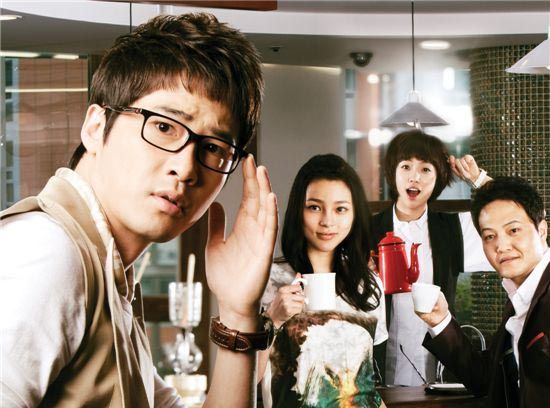
Despite my great affection for Kang Ji-hwan, I had no real expectations for Coffee House, and maybe that’s why I was pleasantly surprised by (most of) it.
I’ve gotten so inured to the standard kdrama cliches by now that any deviation from the norm is a welcome change, and in that Coffee House wins several points. First off, there’s the off-the-wall lead character, Jin-soo (Kang Ji-hwan), who is so far from the standard hero that it’s difficult knowing what to do with him at first. He’s the boss from hell, forcing his hapless secretary (Ham Eun-jung) to undergo numerous wacky schemes, all in the name of writerly experimentation. Yeah, he’s a jerk, and erratic and crazy — but also entertaining for all his eccentricity. He’s hilariously creative in his pranks, particularly the elaborate ones he pulls on his exasperating sunbae (Jung Woong-in). His actions often seem random and insane, until we see the logic emerge at the end.
And while he has a dark side, I appreciate that this drama doesn’t glamorize it as a bad boy in need of a good woman to “fix” him; his depression is crippling, destructive, and hinders his ability to connect with people in a meaningful way. I appreciate the layers that were built into his character, even if I didn’t always like him.
But surprisingly, it was Park Shi-yeon who won me over with her Eun-young character. She was a careerwoman who wasn’t coldly ambitious, was loving but not about to lose herself in an unhealthy relationship, a loyal friend who could call her friend on his bullshit — she wasn’t a cookie-cutter heroine who ticks off all the boxes on a Cliche-o-Meter, like so many heroines.
Their romance was also one of my favorites of the year, because it’s one where I felt for them. Oh, there were lots of couples that I found absolutely adorable this year, but most of them were in the “cute” category; often I felt their romance mentally, but not in a real, gut sense. With Jin-soo and Eun-young, it’s a combination of the unconventional setup — friends for years, but kept apart by the memory of his dead ex-wife — and the actors’ chemistry that brought the bond to life. When they kissed in the rain, you felt her yearning, and later, when they kissed at the train station, you had a palpable sense of his.
Coffee House wasn’t an addictive watch for me — it had uneven spots and the pacing faltered at points — but its unpredictability kept me tuning in.
Bad Guy
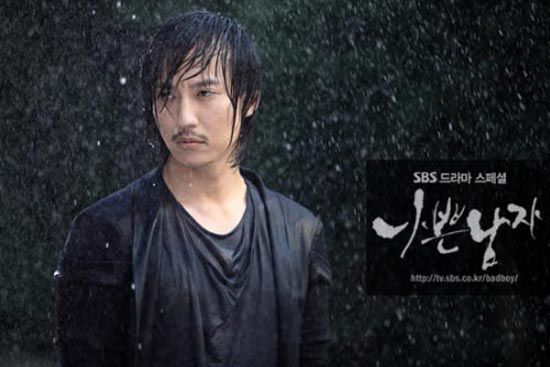
The drama had everything going for it at the outset: strong actors, wonderfully melancholy ambiance with flashes of darkness, moody score, an assured sense of pacing that told me to trust the skilled creative powers steering us through this mystery/revenge thriller that, as its title suggested, was full of moral ambiguity and complex characterizations.
On the acting front, Kim Nam-gil played his Gun-wook character with a detached, impenetrable air of cool, while Kim Jae-wook showed raw acting talent as a damaged chaebol. Oh Yeon-soo was impressive, though more technically sound than moving, and Jung So-min played her spoiled brat role to a tee. The problem was definitely not with the cast.
There were chinks in the glossy armor early on, of course, but I was willing to overlook them and simply bask in the stunning visuals and compelling acting. The drama had a tendency to over-convolute its plot in the name of melodramatic effect (a bane of kdramas as a whole, really), such as the narrative wringer it put lead character Gun-wook through as a child. It heaped trauma upon trauma on him, as though it couldn’t quite trust the audience to accept the moral grayscale, watering it down so that it wasn’t so intriguingly ambiguous after all.
But it wasn’t until the final quarter — about the time that the drama got cut down and Kim Nam-gil was called for army duty — that it became evident that the confident hand guiding us through the drama wasn’t quite so confident after all, and maybe had been bluffing all along. Themes and plots that had been introduced were resolved in maddening ways — the worst offender being that a character committed murder and got away with it, scot-free. And how nobody knew that a crucial character had died.
There were some interesting issues raised — such as how our bad guy wasn’t a bad guy after all but really just craved familial love, only to realize that he’d destroyed his own family. But when you create actions in a drama, you sorta have to see them through the end, and recognize that the actions convey a message. And while nihilism is a theme, it’s not a message, which leads me to the question: So what was the point? Of revenge, of truth, of living? Of this drama?
I Am Legend

The premise sounded fresh — repressed society wife finds liberation in divorce and rock music — and the casting was spot-on. The songs were catchy and the casting of actresses who played their own instruments and performed live was a definite boon. The initial conflict as the wife’s in-laws fought her tooth and nail in refusing a divorce was a gripping underdog story where it really mattered that our heroine win the fight, because she was fighting not for truth or justice (noble but intangible values), but for her very self.
Kim Jung-eun was the perfect actress to play Seol-hee, who is capable of sass but has gradually had that spark suffocated out of her over years of cruel indifference on the part of her husband and his family. I rooted for her to find her wings and stand up for herself, and that kept me invested through the divorce case.
But then the divorce was resolved and half the drama still stretched ahead of us, which they filled by introducing a second lawsuit, making Seol-hee into a crusader for the people. The problem is, even occupation dramas should be about our heroes, not the case at hand. And we just didn’t care enough about the market to make the latter half any sort of interesting.
The drama missed opportunities to do more with the characters, such as the divorce lawyer who is Seol-hee’s rival in the courtroom and for both men — each woman’s ex is the other’s new flame. (Yeah, how tidy is that?) I was intrigued with this character because it’s one we don’t often see — a single mother who gives up custody of her child to her ex-husband because she is ambitious about her career, who isn’t negligent but actually pretty loving. Especially when you have another character in the cast who is a young mother struggling to balance her baby and her career aspirations (Juny). I wished there was more done with those characters, as well as drummer Su-in, who was sorely underdeveloped and didn’t even merit a backstory.
On the romance front, chemistry presented a problem: Too much of it with her dastardly ex, and not nearly enough with the new love interest, the bland songwriter. The setup should have worked, with her divorce from the cold lawyer freeing her for a new romance — or at least hot fling — with the musician she’d had a mad crush on years ago. But chemistry is a tricky thing, unpredictable and impossible to force, so instead the drama left that thread loose.
Which would have been fine if the rock band angle had sustained the show; the use of Seol-hee’s music to mirror her emotions in the first half was a nice touch. Yet here, too, the drama dropped the ball in opting to push the band aside in favor of that market storyline. I Am Legend chose to highlight the most mundane portion and sacrificed what made it charming in the first place — the friendship of the four ladies at the center and their growth as a band — and for that it gets a huge yawn.
Joseon X-Files
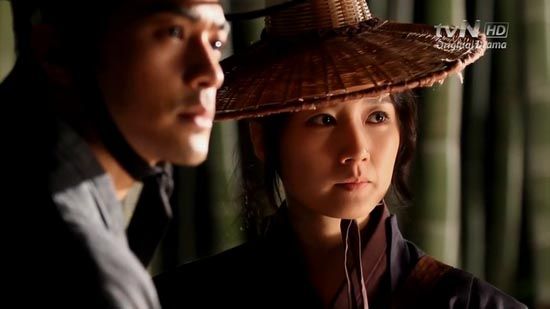
The concept mixes two disparate genres, sci-fi and sageuk, which is an experiment that could have gone horribly awry had it not been able to strike the right tone. Yet it was always in control of its mystery, dropping tantalizing hints at deliberate intervals — it gave you a glimpse of the overarching story that hovered over the drama, much like that great UFO that starts us off, dipping down occasionally to be seen, then zooming out of sight, into whatever space and dimension it came from.
There are aliens and spacecraft and paranormal activity at play, but ultimately this story is about Hyung-do’s journey from the safe confines of the known, visible world into the outer reaches of the unknown. Which is why the ending, to me, is so fitting. He has been through this incredible series of events, his eyes opened to phenomena he used to eschew as hokey superstition, and concludes that despite whatever greater truth is out there, what matters to him is the truth as he defines it for himself. It’s an argument for personal integrity, something he never loses his grasp on, and how can you argue with that?
This is one drama that doesn’t tie up its loose ends neatly, preferring to lay the groundwork and let you interpret based on the guidelines they’ve established. An entirely open-ended finale would have driven me nuts, but there’s just enough closure — and clues as to what happened — for me to be satisfied. The drama gently suggests lines of thinking that leave you free to believe — or not. Just as we do in real life.
My Girlfriend Is a Gumiho
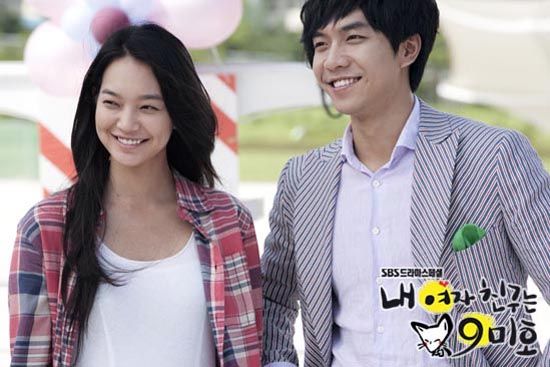
I’ve come to expect a few things from them, some of them good and some not quite so much, and Gumiho has ‘em all: endearing leads, a comic courtship that uses humor to undercut moments before they get too saccharine, pop culture references, and lots of parodies. But with this drama, they introduced a new element — fantasy mythos — that elevates it by adding another dimension of meaning and symbolism to the story.
By making the gumiho real and plunking her down in modern-day Korea, we get a whole host of metaphors for human relationships that the writers play with on both literal and figurative levels. The ethereal being wants desperately to become human and live in the world, rather than watching it zoom by her from her immortal prison, on eternal standby.
She’s paired with a wastrel of a manchild who hasn’t quite learned what it means to be human either — and by extension, what it is to be a man — because he’s been pampered and privileged. As they fall in love, they both mature and establish their own rules for happiness, which is literal for them — how to keep both alive when there’s only enough ki, or life energy, for one person? — but which could just as well be a metaphorical representation of two young people discovering what it means to be in love and reconciling seemingly insurmountable differences to be together.
Shin Mina has been around for a decade and was quite famous in her own right, but the Mi-ho character was still a breakthrough for her, particularly since many had written her off as mere CF star and pretty face. She was luminous as Mi-ho, imbued with a childish curiosity that stopped short of making her seem stupid. She looked at the world with wide-eyed wonder, lit up from within, and won us over with her love of all things cow, pig, and chicken (in that order!), her adorably literal interpretation of language, and the way she loved unabashedly, confidently, and unwaveringly. We could all take a cue from her.
If I have to voice any criticisms of the drama, it’s that because the Hong sisters are so free with their favorite devices and twists, Gumiho didn’t feel quite as fresh as I wish it had. That’s what you get when you’ve gotten familiar with a particular artist; you want them to surprise you every time, and when they don’t, you feel bummed at the recycled elements which may only be visible to those who are equally familiar with the entire oeuvre.
However, taken on its own merits, Gumiho was winning and at times heartbreaking, and above all a breath of fresh air.
Sungkyunkwan Scandal
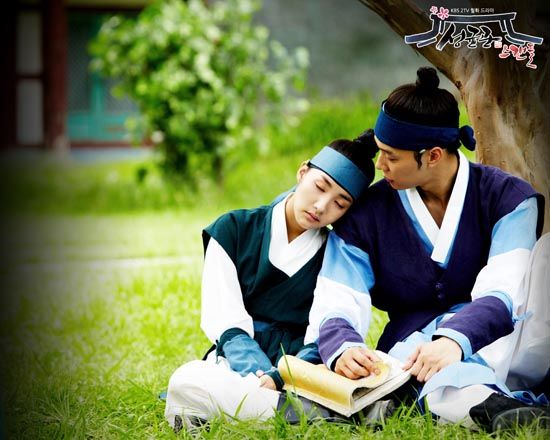
Sungkyunkwan Scandal was addicting to the highest degree — at least for the first ten or so episodes, before that slowed. Even so, there was so much energy and life to the characters that it built up a pretty substantial store of goodwill with me. I know Sun-joon (Yoochun) was staid and boring, but I loved his integrity, and how he maintained it without being pretentious — he was noble and righteous to the core, not just trying to demonstrate superiority. Yong-ha (Song Joong-ki) was an intriguing mix of bold and fearful — his “secret” as a merchant’s son kept him from engaging fully, lest he be found out, but he developed a bond of loyalty with his friends that brought out his courage.
And do I even have to mention Jae-shin (Yoo Ah-in)? Having been impressed with Yoo back in 2008′s thoroughly silly Strongest Chil Woo, I wasn’t surprised that he became the breakout star of this drama, though I was surprised at just how intense the fervor would become. He was the traditional hero — brave, dashing, with a pained past and daddy issues — only he wasn’t the hero. Hero points AND tragic never-gonna-get-her points! Is it no wonder we all fell victim to the Guh-ro virus? (While Yoon-hee (Park Min-young) wasn’t my favorite character, she held up as the object of these guys’ affections, so she did her part.)
But more than each person on their own, Sungkyunkwan Scandal was sprinkled with some kind of pixie dust that made the total more than the sum of its parts. Separate, they were cute. Engaging. Endearing. But together, they were awesome, and the witnessing camaraderie that sprung up between them was like being dosed with happy juice.
I do have fairly major issues with the ending, which was all fanservice and pretty close to no character consistency, and sadly that does dull the memory for me. If only it hadn’t reneged on its earlier promises to give us a satisfactory out for the problem it set up — of how to reconcile Yoon-hee’s brilliant mind and her true identity with the strictures of the times. Instead, it left us hanging, and I think I’m still bitter about that, having had such faith that they would deliver.
A cop-out of an ending usually kills my love entirely (see: Bad Guy, Cinderella’s Sister), but Sungkyunkwan was so winning that I still remember it fondly, even if it is more as a “what could have been.” (Answer: AWESOME.)
Playful Kiss
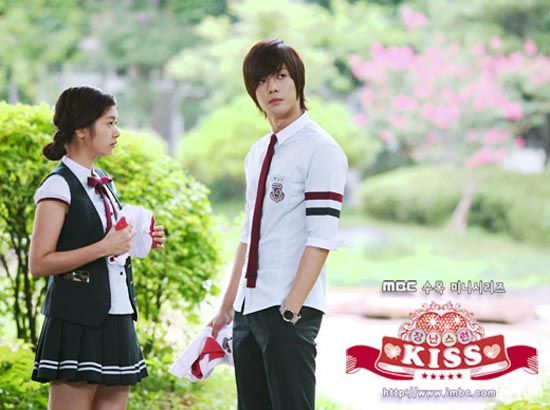
The drama had a number of flaws, but wasn’t without its charm. My favorite thing about it was undoubtedly Jung So-min, who played Ha-ni with a realistic, heartfelt touch that I’m not convinced that the character was written to have. More than any actress in recent memory, she captured the chaotic emotional contradictions of what it feels like to be young and in love (or in crush) — the giddiness of a brief mundane encounter, the teeny voice of reason that reminds you that the crush is better off abandoned, the devastation in knowing you’re nothing to him alternating with the undying hope that maybe, just maybe, he really was looking at you this time.
She embodied that complex well of emotions so wholly that I felt embarrassed for her when she faltered, proud when she stood up for herself, and, yes, exasperated when her feelings got the better of her and she went back to pining for Seung-jo. Every. Damn. Time. But it was an exasperation of the sort you feel for a good friend, or a sister, born of concern and affection. She was Ha-ni — all heart, not so much brain.
Seung-jo, on the other hand, hardly deserved her, which almost everybody realized eventually but Ha-ni herself. I’m not a fan of his type of character or the dynamics of this relationship — not one tiny bit — and routinely had to fight my aggravation at how he liked to mess with Ha-ni’s emotions for sport, or how Ha-ni was never able to escape his thrall. Once it was clear that he reciprocated, Playful Kiss got a lot more fun to watch, but I still wish there was more substance to this drama. Slice of life is fine and all, but there were stretches where these two hardly spoke, so we didn’t even have the benefit of cute bickering to tide us over.
What’s ironic is that had this been Kim Hyun-joong’s debut drama, I think his prospects as an idol-turned-actor would have been much brighter, even though Boys Before Flowers had tons more viewers, more buzz, and a bigger place in the public consciousness. He isn’t exactly good in Playful Kiss, but he’s serviceable, and in that regard I have no complaints with his acting. (There was hardly any acting to be done on his part, because his place in the story was as a cold, mysterious cipher to Ha-ni for much of it.) Alas, he’ll have to wear the tarnish of Boys Before Flowers for a little longer, with Playful Kiss having flopped so spectacularly in the ratings.
Ultimately this drama isn’t one to watch for anything other than brain candy, since plot is nonexistent — some stories don’t even conclude properly, they just fade out and we pick up some time later. It’s all about the two characters growing up alongside and gradually toward each other, so if you find either character lacking, chances are this isn’t the drama for you. On the other hand, you might enjoy it if you don’t mind low-key, low-drama cuteness.
Dr. Champ
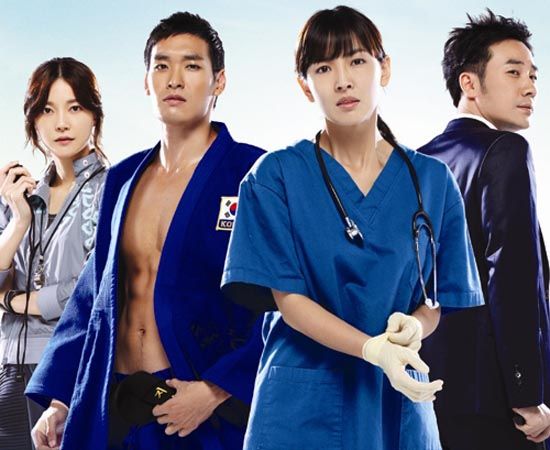
In avoiding a lot of the cliches that have come to be used as crutches, Dr. Champ offered a refreshing change, though it was perhaps a bit on the underwhelming side. There was no Big Drama, which meant that the drama had less momentum carrying us from week to week, especially with the episodic nature of the stories; plots would resolve in an episode or two, and then a new conflict would befall our doctors and provide the next obstacle.
Ji-heon’s (Jung Kyeo-woon) relationship with rival-friend Sang-bong was one of the shining highlights of the show, providing us a healthy dose of bromance (So. Cute.) and supplying Ji-heon with some emotional turmoil when certain things go awry. His courtship with Yeon-woo (Kim So-yeon) had its share of cute moments, though truth be told, it was one-sided stuff for far too long. (Kim So-yeon is a brilliant actress and is finally getting some well-deserved recognition, but her character was often hard to get behind, with her snappishness and anemic reception of Ji-heon’s numerous attempts to win her over.)
On the other hand, Uhm Tae-woong strikes me as the kind of actor who needs a specific vehicle in order to be brilliant, and unfortunately, Dr. Champ wasn’t it — he’s much better being wry and just a little twisted. It didn’t help that he was paired with an energy-suck of a co-star, Cha Ye-ryun, whose bland character was not helped by her bland portrayal.
That means I sped through those scenes as much as I could, preferring to stay with the slice-of-life dramas that complicated Yeon-woo’s life, and sympathetic characters like exuberant puppy-dog man-child Ji-heon and his motley cast of hard-bodied judo teammates, who kept things moving. And as we know, a little bromance goes a long way.
Runaway Plan B
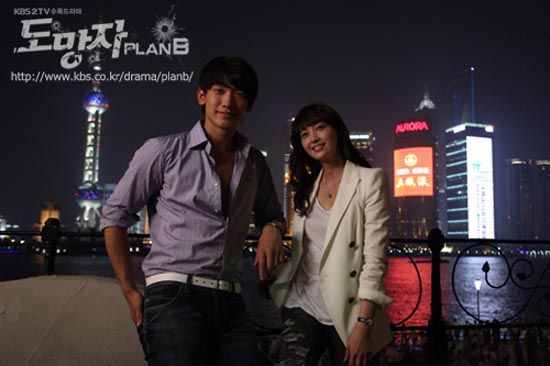
I had almost written off Runaway Plan B early on, because while it was flashy and entertaining, it was also very empty. Normally I don’t have the patience to wait eight episodes for a drama to get good, especially if I’m not getting anything out of it. On the other hand, all it takes is one compelling thread, one promise of better things to come, to keep me hanging in there. In the case of Runaway Plan B, there were a few.
First, the matchup of Ji-woo (Rain) and Do-soo (Lee Jung-jin), whose cat-and-mouse chase took them through Asia and into some inventive fighting sequences. Crowded streets, high-rise roofs, flatbed trucks, pedi-cabs, warehouses, swimming pools — there was no end to their creative combat scenes. While the fighting eventually grew tiresome, the intensity with which the adversaries poured themselves into the clashes was imbued with an emotional undercurrent that brought to life the desperation of one to capture, and the other to evade capture.
Second was the cop romance, adorably anchored by the feisty So-ran (Yoon Jin-seo). While we are enjoying a greater range in kdrama heroines these days, most often it’s still the hero doing the pursuing. So-ran was sassy and strong, but not above relishing some clinch time spent with her oppa, and declared her feelings for him repeatedly and frankly. So-ran grinning giddily, mid-high-speed-chase, as Do-soo finds himself inadvertently wrapped around her is still one of my favorite moments of their courtship.
Third, there’s Rain’s comic performance. More impressive than the wit and ease of his line delivery, or his goofy charm, or his dramatic intensity later on, was the way he was able to turn from one emotion to another with the flip of a switch — one second pouring on the cheesy charm, the next glowering fiercely — and maintaining his character’s sincerity throughout.
The second half of the show (the better half) saw the silly comedy transition into high stakes and life-and-death drama. Funny enough, despite all the frantic jet-setting and running in the first half, it’s actually the second half that zoomed along, plot-wise. Ji-woo and Jin-yi (Lee Na-young) found themselves wanted by a mastermind and targeted by a series of assassins, and as their bond grew, so did mine with the series. Finally, they were in true danger, the kind that Ji-woo couldn’t just high-kick his way out of with a swagger and a grin.
I wasn’t entirely satisfied with the overly simplified resolution to the Big Bad — it’s a little toothless, admittedly — but on the whole I found Runaway a pleasant surprise, one whose merits I wish hadn’t taken so long to discover.
Mary Stayed Out All Night
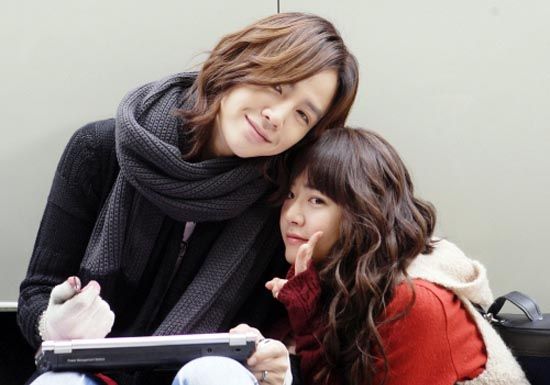
When considering her performance in this drama alone, one might suppose that Moon Geun-young fell into a role that suited her perfectly — an innocent, cute, damsel-in-distress who fits the stereotypical Candy heroine type — and dismiss her performance. She’s so natural, so earnest, and so Mary that you’d think she’d been doing these characters all her life… until you remember that just earlier this year, she was so surly and bitter in Cinderella’s Sister. And that two years ago, she won a Daesang for playing a cross-dressing painter in historical drama Painter of the Wind.
Same with Jang Geun-seok: Mu-gyul seems like such an easy role for him to play that it’s easy to overlook that Hwang Tae-kyung, his character in last year’s You’re Beautiful, was like Mu-gyul’s polar opposite in everything except maybe love of his own hair. Where Tae-kyung was cold and uptight, Mu-gyul is free and warm.
Kim Jae-wook had just shown us such budding promise in Bad Guy earlier this year, only recede into the wallpaper here, only emerging occasionally to interrupt the lovebirds or engage in a well-timed back hug. So really, it’s their talent that makes these actors seem so natural when these characters so lack consistency.
If only they had a story to support them. Quickly unraveling at the seams as it heads toward the finish, Mary is flailing and seems to be making a mad grab and any and everything around it on its way down — insane parents, illogical behavior, repeated story beats, kidnappings. On one hand, it’s makes for an entertaining watch, even if it wasn’t intentionally meant to be so. But there’s no crying over spilled milk, so maybe unintentional amusement is the best way to make the best of an unfortunate situation.
Secret Garden
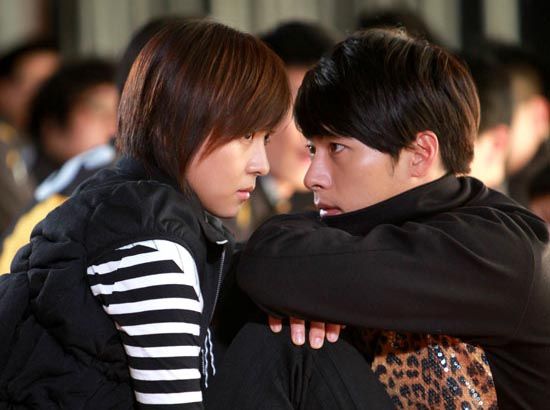
Since the fantasy element was brief and currently not in play (the body-swap has occupied a surprisingly small amount of real estate), Secret Garden‘s magic isn’t so much literal as it is tonal — it’s in the dreamy cinematography, the contemplative moods, the way Joo-won imagines Ra-im always nearby. That dash of whimsy carries over into the plot as well, even when there’s nothing strictly supernatural going on. I love these little touches, such as when a seemingly random shelf of book titles form an unintentional poem. It’s like finding beauty in unexpected places; maybe it doesn’t mean anything on its own, but it has the power to move you. Style without substance is not going to get a drama far, but style on top of substance can elevate a scene, or your emotional connection to a beat.
In addition, Secret Garden has a rollicking sense of humor, and has surprised a laugh out of me on more than one occasion. Some actors are better at carrying the humor than others — Yoon Sang-hyun overacts, Hyun Bin is a comedic revelation — but overall, the script is written (sharply, and wittily, at that) to tailor to their assets.
I’m hesitant to make any declarative statements when the drama’s still a ways from wrapping, but if things continue in this vein, Secret Garden will be one of my happy surprises of the year. I hadn’t been terribly intrigued about a body-swap drama when I first heard it announced, but as we know, execution is everything. Smooth directing, clever writing, and hilarious acting make this drama sparkle with enough life to rival one of Joo-won’s hand-stitched, imported designer tracksuits. (Finally, an instance where resemblance to that cursed tracksuit is a good thing!)
Rock Rock Rock
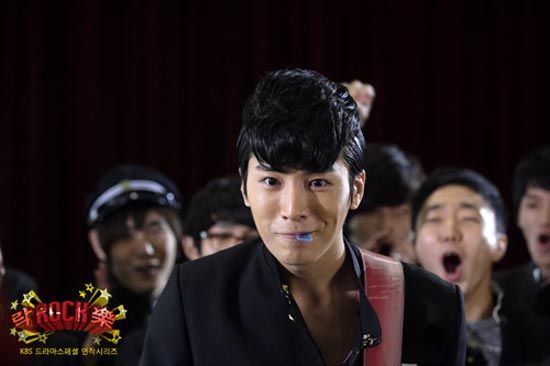
To be honest, I’m not sure this drama would appeal to someone with no interest in the music or story of legendary rock band Boohwal, or perhaps in music in general. While Rock Rock Rock is made to be watched as a drama rather than a documentary or straight-up biopic, it is basically the life story of lead guitarist Kim Tae-won and the origins of the band. There are parts where my interest flagged, although overall I enjoyed seeing the lives of people I’d only known in a vague sense as public figures. But it does employ some nifty non-linear storytelling techniques to keep the narrative moving, skipping over years sometimes, and filling in the blank spots with flashbacks.
But if you’re a budding Noh Min-woo fan? By all means give it a watch; his performance alone is enough to tether the drama in heart and emotion and prove that he’s much better than playing at stone-cold emo boy. As a newly converted fan, I’m eager to see what he does next.
Phew, finally done! Stay tuned for the rest of the Year-in-Review series, and I hope you’ll enjoy it as much as I know I will.
